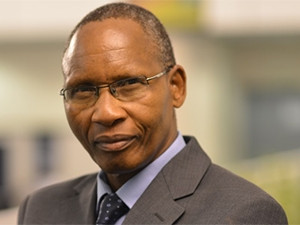
Although the jury is still out on who exactly has the authority to reduce the cost of data, there is consensus that regulators have a significant role.
In SA, the issue of high mobile data costs is hotly contested. South Africans have used social media, via #DataMustFall, to vent frustrations over what they term "exorbitant" mobile data prices.
Consumers' concerns did not fall on deaf ears because as soon as #DataMustFall started trending, public hearings on price transparency were hosted by Parliament's portfolio committee on telecommunications and postal services.
Organised rights groups, political parties, the telecoms department, the Independent Communications Authority of SA (ICASA) and civil society jumped on the bandwagon and joined calls for affordable mobile data.
However, organisations like the Free Market Foundation (FMF) frown upon government and ICASA's involvement in the #DataMustFall movement.
The FMF has said a clear grasp of all the facts on the cost of data needs to be in place first. The foundation stated it finds fault in knee-jerk government intervention by heavy-handed regulation.
The FMF is against government intervention in the economy, saying prices for goods and services must be determined by an open market.
However, Thari Pheko, CEO of the Botswana Communications Regulatory Authority, said during a media briefing on Tuesday, at the 2016 World Telecommunication/ICT Indicators Symposium in Gaborone, Botswana, that the regulator has a significant role to play to reduce data costs.
The act of all regulators is to ensure there is competition in the market, there is quality of service, as well as determine the cost of regulation, he stated.
"The normal practice is that regulators conduct a survey and what you call a cost and pricing model, which is to determine the cost of providing the service and also to find out how much it is going to cost. The business must put forward a proposal to the regulator and the regulator later determines what pricing should be charged.
"That is: you actually look at the cost of regulation, what does it cost operators for them to do the business, and thereafter they will tell you how much money they can actually charge. The regulator makes the determination to ensure the consumer is not overcharged."
Pheko added the most important aspect is that like must be compared with like. "You find that the main currency that is being used is the dollar, and when your local currency is under pressure, you will find that the cost of selling mobile data is high.
"Sometimes as regulators we care to say you cannot charge a certain amount of money."
According to Andrew Regege, the International Telecommunication Union's (ITU's) Africa director, responsibility for reducing mobile data prices goes across the board.
"It needs to start with the regulators; the ITU is also leading the research and specialisation part to make sure things work together so that prices come down.
"In Africa, governments have started to go back and have a look at what is bringing the prices up. One of these things is infrastructure and therefore most African countries are putting in place infrastructure-sharing mechanisms so that operators don't have to go and build more towers, more fibre and there are regulations that are getting into place."
Share